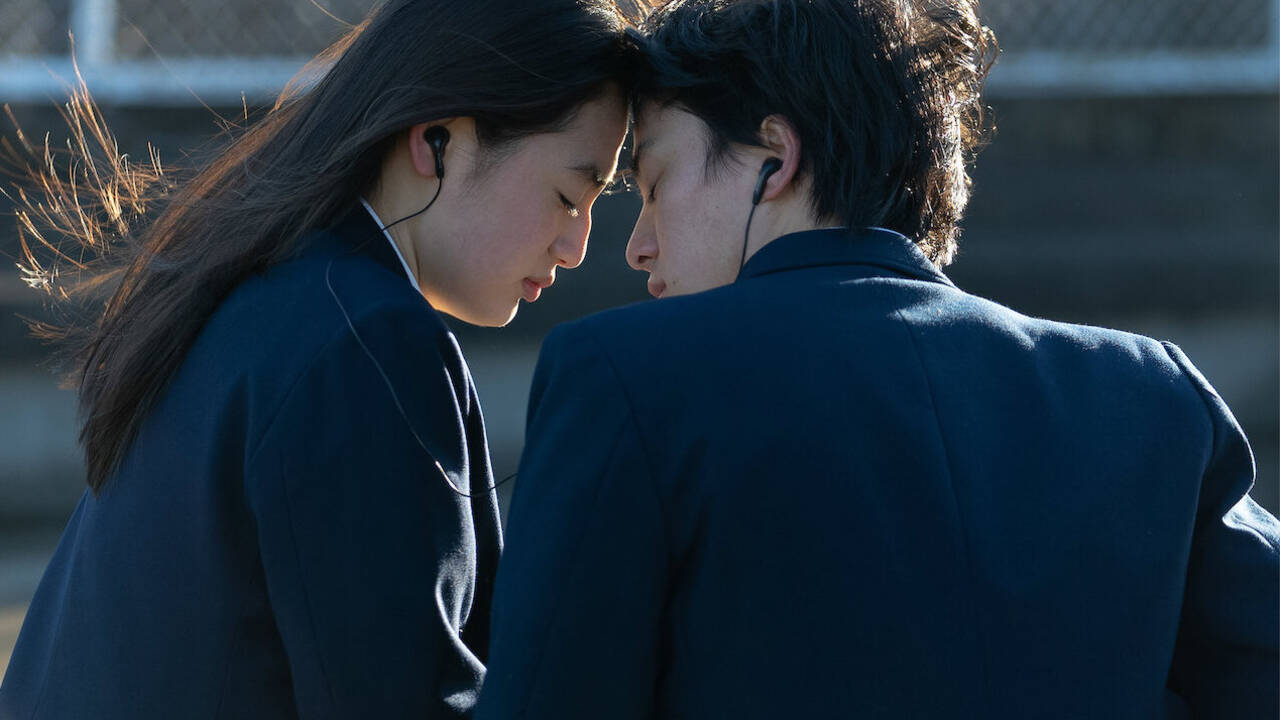
The foundation of Yuri Kanchiku's breathtaking Netflix series First Love is based on fate and its extraordinary powers. It wholeheartedly believes that first love is special and creates such a strong gravitational force between lovers that even the unpredictability of life cannot separate them forever. What's life but a series of events. And fate is something manipulative that puts people on specific paths, which sometimes gives rise to shocking encounters. Within the world of movies, the writers and directors become gods and move their characters as per their desires. There are times when this "manipulation" sticks out, resulting in a film/series with puppet-like characters.
First Love, however, has no such issues. Kanchiku is a gifted filmmaker, and First Love works extremely well because the director believes in the story she tells. There is truth in this story, which seems to arise from a personal space. That space unabashedly loves the romantic genre and treats its mechanics with respect. First Love proves that cliché does not necessarily mean lazy or bad. You can recycle the wheel with admiration and make magic out of old material.
There are nine episodes here. Why? Because Kanchiku wants to give a gift to all the romantic movies/series aficionados out there. Consider First Love as a complete package. There is meet-cute, amnesia, continuous separation/reunion, the plot point regarding letters hidden by parents, multiple love interests, and even that famous airport scene where the boy arrives in the nick of time to say sorry and propose to his girlfriend. In other words, Kanchiku has done a big favor for all of us who are disappointed by the slew of unromantic and ho-hum rom-coms that are churned out in large quantities nowadays. Filmmakers today have forgotten how to make a good romance, which is why you yawn at most of them. The problem is that most of them are embarrassed by melodrama. They want to be "realistic" (see pretentious) and hence, struggle to land basic emotions. Even when some try their hands at melodrama, they fail because they lack the skill to pull off the dramatic tone and emotions. So if you are starving for genuine romance, you can drown yourself in Kanchiku's excellent and heartfelt work.
There is a circular road in First Love, which alludes to the show's concept of fate and life. The cars come from one side, go around in circles, and then take the exit. Similarly, the characters enter this story from one side, go in different (or the same) directions and places and scenarios as if moving in circles, and then exit on the other side to reach their destination. Yae Noguchi (Rikako Yagi when younger, Hikari Mitsushima when older) and Harumichi Namiki (Taisei Kido when younger, Takeru Satoh when older) often meet each other at various points and get separated. All their decisions, their actions lead them toward each other. Just look at that scene in the first episode where Yae indirectly receives flowers from Harumichi. Or take another one where Yae avoids going to a particular building but eventually has to drive there due to a customer. All these incidents firmly establish the greatness of their bond.
By shifting between past and present, First Love achieves two things: (1) It reaffirms the last point made above, and (2) it provides us with a sense of discovery by dispensing information slowly and at the right moment. Through a character named Tsuzuru (Towa Araki), Yae's son, the series says that first love raises the same reaction, no matter what generation one belongs to. After a young Harumichi proposes to young Yae, she is seen in a euphoric mood, kicking her legs on the bed. This is precisely what Tsuzuru does after meeting with Uta (Aoi Yamada). Since Uta is his first love, he ends up with her. The series doesn't say that you cannot find someone else. Both Yae and Harumichi find other people and start romancing them. It's just that these other relationships are not as exceptional and unique as first romances, and therefore, they tend to crumble.
The characters in First Love do comedy and engage in villain-type stuff. Yet, the series doesn't reduce them to labels like "comic reliefs" or "villains." There's more to them. For instance, Yae's shy and awkward co-worker passionately talks about Mokkan, and you see why Yae's mother does what she does to keep Harumichi away from her daughter. These people have a past and their own memories to share with us. That's why it's a little underwhelming that Yae's ex-husband and his mother are not as richly conceived as others. But the actors are brilliant. If I start singling out every performance, this review will appear like a laundry list, and I don't want that to happen. Rather, I will mention Mitsushima solely because I found her face expressive and honest. She displays an innocence so warm it makes you want to be kind and better. This is a compliment you can also extend to the entire show. First Love radiates such an incredible charm that you wish to close your eyes and hug the screen tightly so that this world and these characters never leave your grasp. This is undoubtedly one of my favorite shows of the year.
Final Score- [9.5/10]
Reviewed by - Vikas Yadav
Follow @vikasonorous on Twitter
Publisher at Midgard Times
Hi Everyone, after a due consideration, we have decided that we will be open for donations to help us in managing our website. We will be greatful for any kind of amount we receive. Thanks!
— Midgard Times 🎬 (@Moviesr_net) January 4, 2026
PayPal- [email protected] pic.twitter.com/DlNNz5Npm5
Get all latest content delivered to your email a few times a month.
Bringing Pop Culture News from Every Realm, Get All the Latest Movie, TV News, Reviews & Trailers
Got Any questions? Drop an email to [email protected]